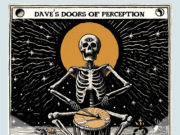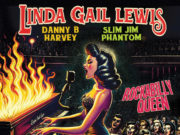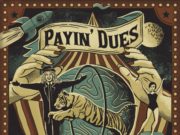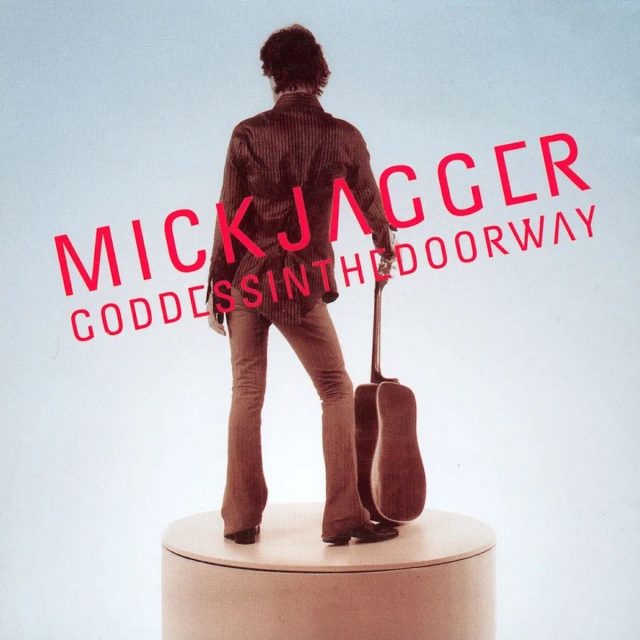This came out in 2001 – or at least that’s when I got it. Here’s what I said about it back then (with some minor editing):
When you’re already in The World’s Greatest Rock ’n’ Roll Band, what do you do for an encore? This is the problem that has nagged at The Rolling Stones for as long as they’ve been making solo albums. They’ve all handled it differently. Charlie Watts changes the subject by playing jazz; Ron Wood shrugs and tosses off light-hearted, jammy larks; Keith Richards stubbornly carries the torch by making solo CDs that are basically Stones albums minus the Stones.
But Mick may have it toughest of all. As the voice and face of the band — not to mention one of its main songwriters — he’s in a no-win situation. If his solo work sounds too much like the Stones, purists gripe that he’s parodying himself; if he doesn’t sound enough like The Stones, they gripe that he’s lost touch with his roots.
Well, on his fourth solo album Goddess in the Doorway — his first solo outing in eight years — he may finally have hit on a decent strategy: Try not to write songs that sound like the Stones, but make your album as if you were making a Stones record. Which is to say, play as much dance-pop and funky soul as you want — but be sure to keep the rockers cooking, keep the ballads strong and focused and don’t forget to toss in a little country for good measure.
That’s Mick’s game plan for this 56-minute album, and most of the time it works reasonably well. Backed by a V.I.P. list that includes everyone from old-guard pals like Pete Townshend to worshipful acolytes like Joe Perry, Lenny Kravitz and Matchbox 20’s Rob Thomas, Jagger presents some of his least forced and thus most distinctive work on these dozen tracks.
Joy, featuring shared vocals with Bono and one of Townshend’s signature morse-code guitar lines, fuses gospel to propulsive wah-wah funk; Hide Away grooves to a spare backing track of soulfully funky blues; God Gave Me Everything, co-written and performed almost entirely by Kravitz, is a smoking fuzz-bomb of classic rock; Lucky Day has one of those hip-swivelling R&B grooves you’re already picturing Jagger dancing to; Everybody Getting High augments its choppy, Joe Perry guitar lines with a robotic electroboogie vaguely reminiscent of ZZ Top; Too Far Gone is a southern-flavoured roots-rocker anchored (like most of these numbers) by Jagger’s strummy rhythm guitar and topped with burbling organ and tasty guitar licks (once again by Perry).
If there’s one quibble about Goddess, it’s that most of the better tracks come later in the disc. For some reason, Jagger leads things off with one of the least interesting tracks, a big arena-pop number called Visions of Paradise, complete with strings. Originally it was the album’s title track; presumably, Jagger thought better. Too bad he didn’t follow up by moving it further into the album, along with the fairly standard, slightly overproduced ballads Dancing in the Starlight and Don’t Call Me Up.
Of course, that’s why your CD player comes with a skip button. Ultimately, it just means that Goddess in the Doorway gets better as it goes along. As does Mick Jagger’s solo career, it seems. Now he just has to figure out what to do for an encore.










































